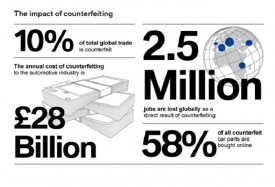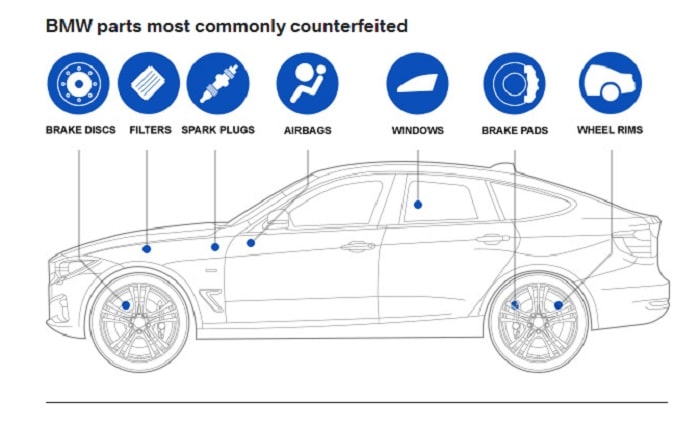Counterfeiting is often regarded as a victimless “soft” crime, however recent estimates suggest the annual cost of counterfeiting to the automotive industry has now reached £28 billion.

Genuine BMW parts are thoroughly tested in the toughest of conditions, a wheel one of the most stressed components on a car, bearing the weight of the car and impact from the road.
Over a 15-minute journey, with an average speed of 30mph a wheel could revolve 6,300 times which means they are working hard, even during the most relaxing journeys. The quality of counterfeit wheels varies significantly from wheel to wheel. Whilst a counterfeit wheel can look identical to a BMW design, it often performs differently and will not be tested to the same stringent procedure BMW follows, if it is tested at all.
The digital world has acted as a catalyst and sellers of counterfeit products enjoy the anonymity behind online marketplaces and social media platforms. BMW Group advises customers to take the following precautions when buying BMW goods:
- Trust your instincts. Often, a significantly lower price is the first indicator of a counterfeit product. However, there may also be counterfeits that are priced at around the same level as the original.
- Check the spelling and grammar on the website and of the URL. Poor-quality lettering and logos, or different colours and compositions are good reasons to be suspicious.
- Look to see where the trader is based. Check to see whether that the seller has provided a genuine postal address. Although they may use a ‘co.uk’ address, do not assume the seller is based in the UK.
- Protect your financial and personal details. Buying counterfeit goods runs the risk of financial and personal details being compromised and used for fraudulent scams.
Genuine BMW Parts and Accessories can be purchased via our Approved Retailer Network or from BMW Direct, our official eBay and Amazon stores.
A growing concern demands a global action. To find out more visit www.bmw.co.uk/brandprotection.








